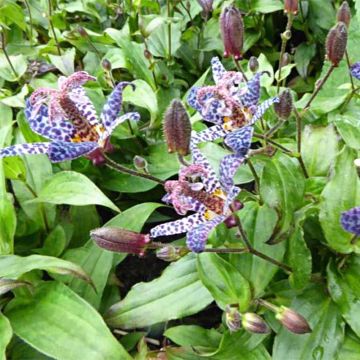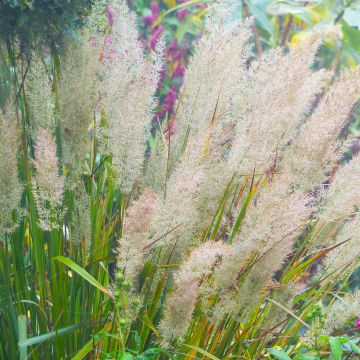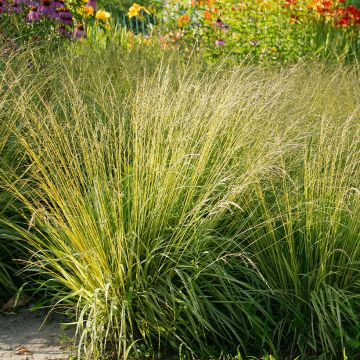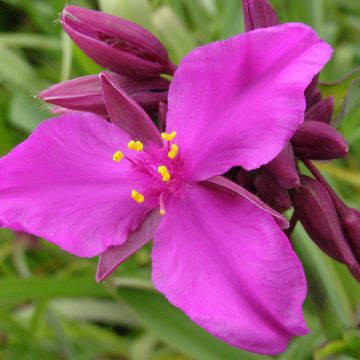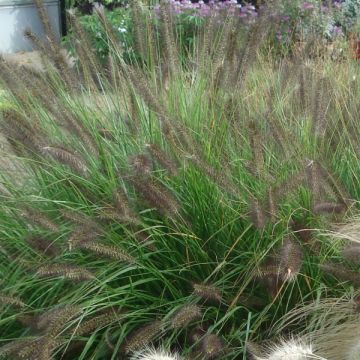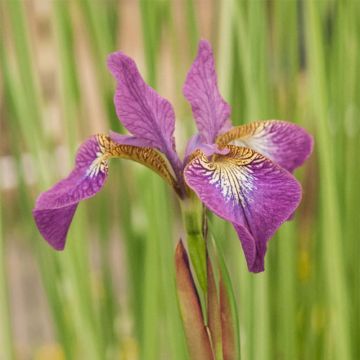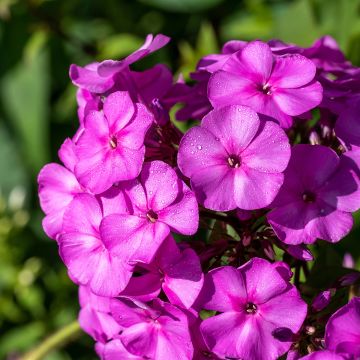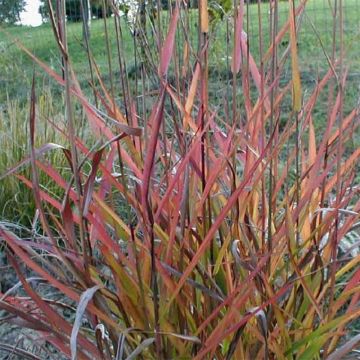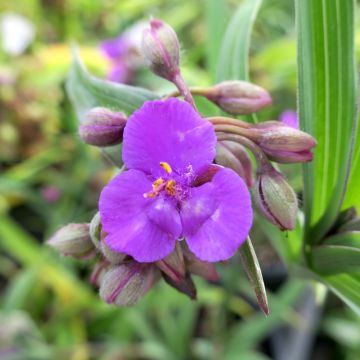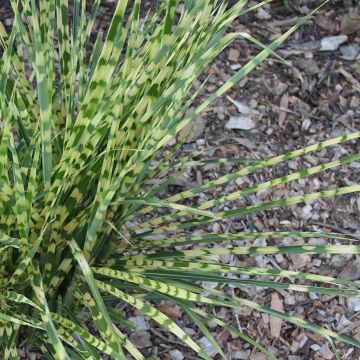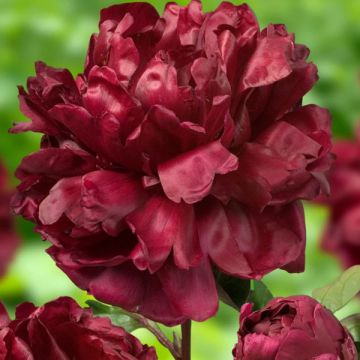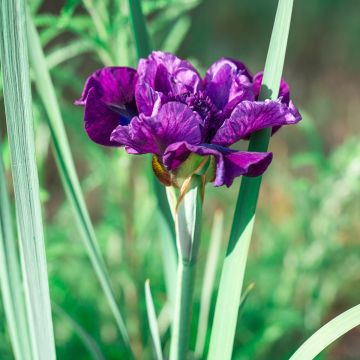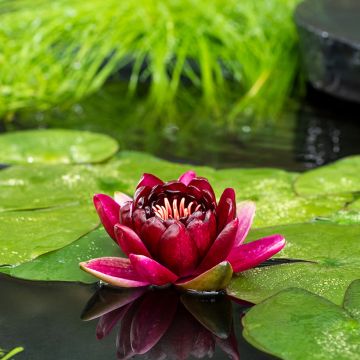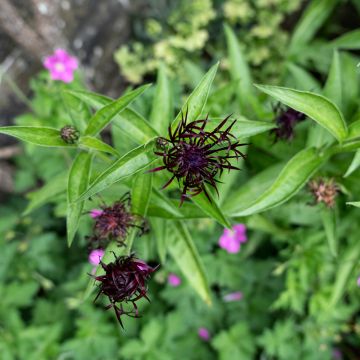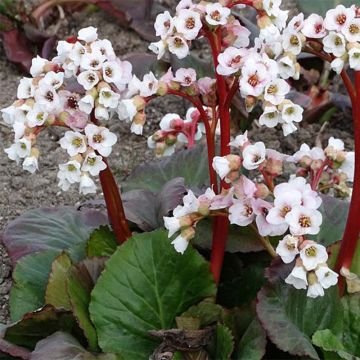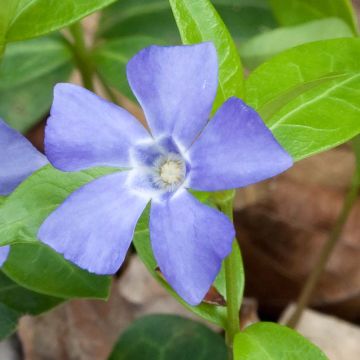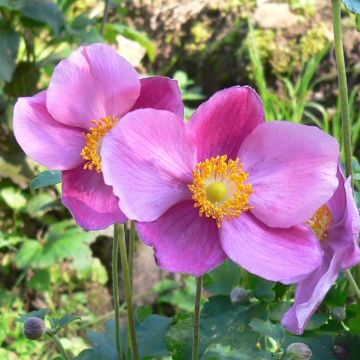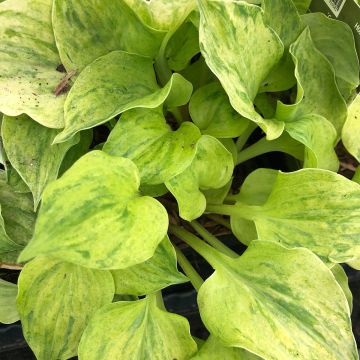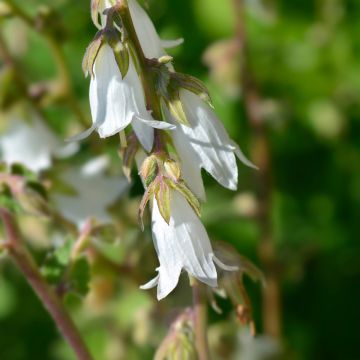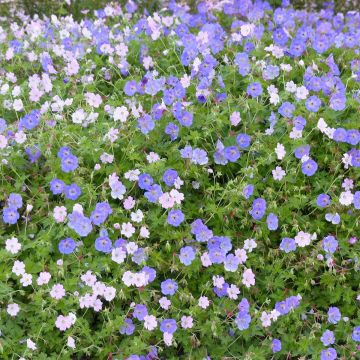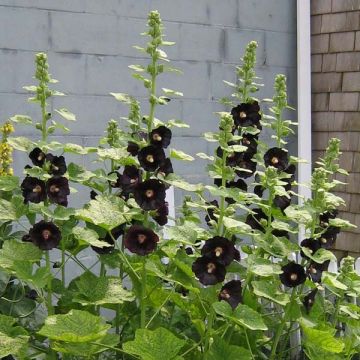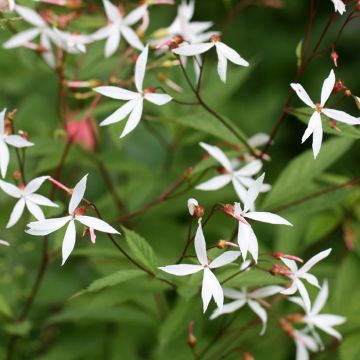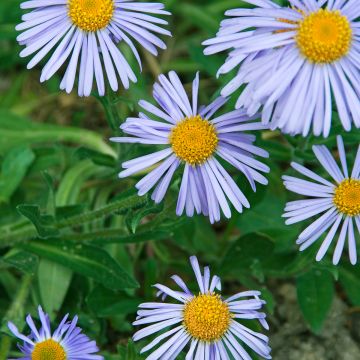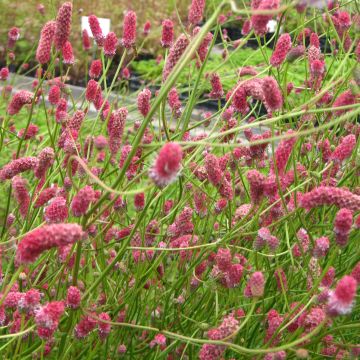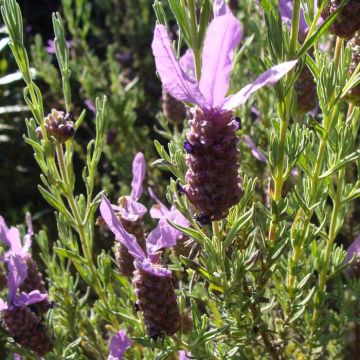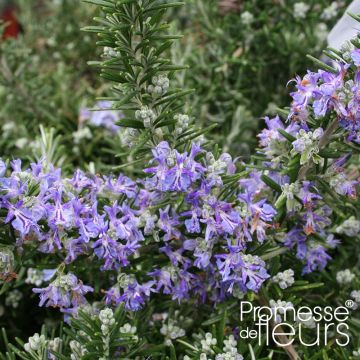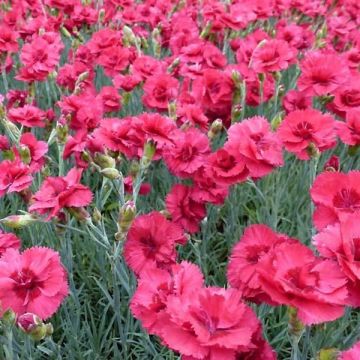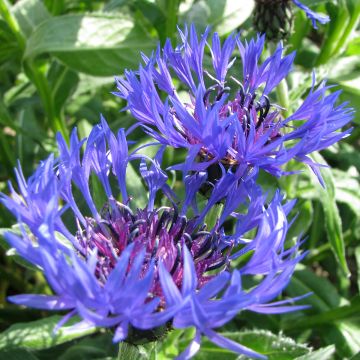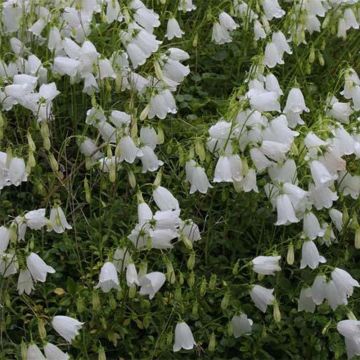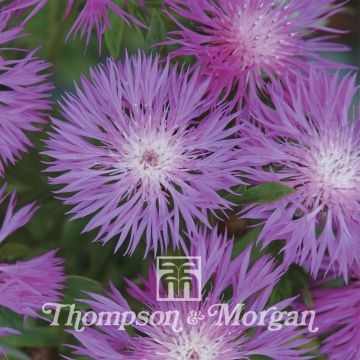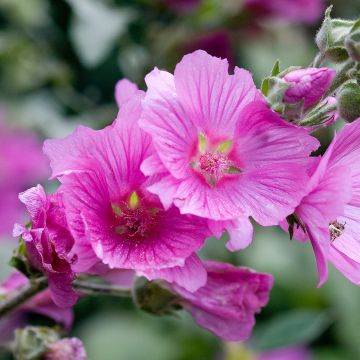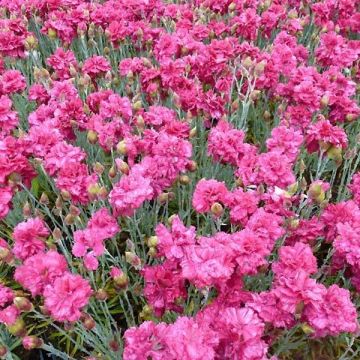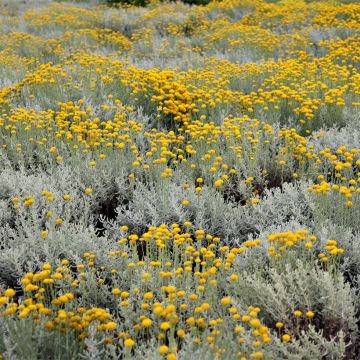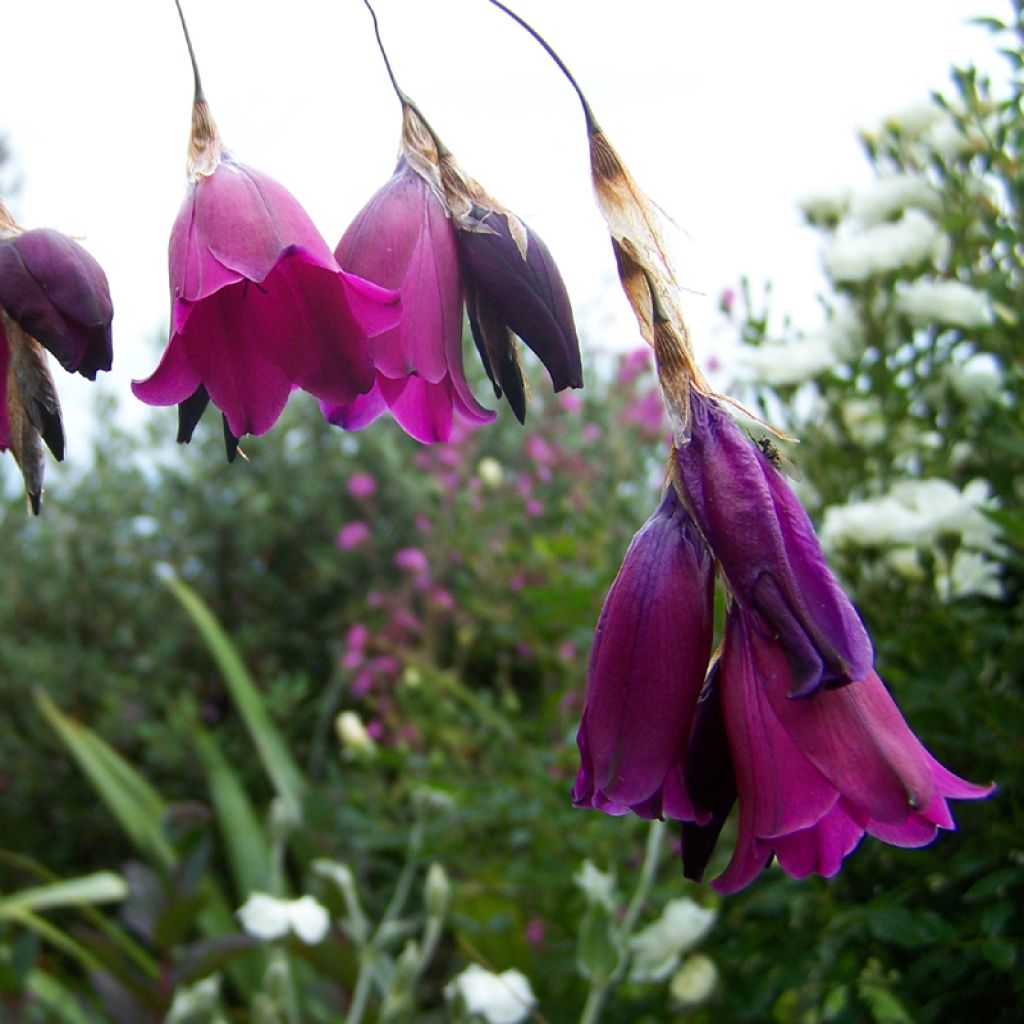

Dierama pendulum var. robustum Blackberry Bells
Dierama pendulum var. robustum Blackberry Bells
Dierama x pendulum var. robustum Blackberry Bells
Angel's fishing Rod, Wedding bells
To be seen over time... received correctly by Chronopost... I find that in the 2-3L pots, I have practically the same quantity as in the seedlings... we'll see during planting... an additional opinion in a year...
Isa, 08/03/2024
Why not try an alternative variety in stock?
View all →This plant carries a 12 months recovery warranty
More information
We guarantee the quality of our plants for a full growing cycle, and will replace at our expense any plant that fails to recover under normal climatic and planting conditions.
From €7.90 for pickup delivery and €6.90 for home delivery
Express home delivery from €8.90.
Does this plant fit my garden?
Set up your Plantfit profile →
Description
Dierama 'Blackberry Bells', poetically called wandflower, Angel's Fishing Rod or Venus's Fishing Rod, is a truly enchanting perennial plant in full bloom. This hybrid cultivar forms a beautiful tuft of gramineous leaves from which long, flexible, and arched stems emerge in summer, displaying graceful, trembling, bell-shaped spikes in shades of violet, garnet, and rose-purple. It deserves a special place, whether in a large pot on a patio, planted individually, along a path, or in a border near a water feature. Relatively hardy, it spreads year after year in moist, well-drained soil.
Dierama 'Blackberry Bells' is a horticultural hybrid resulting from cross-breeding between D. pulcherrimum 'Cosmos' (with very dark purple flowers) and D. pendulum var. robustum, a hardier variety with large white flowers. It is an evergreen plant with corms belonging to the Iridaceae family, native to wet and marshy meadows of East Africa and South Africa. It resembles a grass, with an erect clump of green leaves resembling certain iris leaves. They are narrow and gramineous in shape. Reaching a height of 50cm (20in), it will eventually form a clump measuring 1m (3ft) in diameter at the base after many years. From June to August, long, thin, and sturdy stems, up to 1 to 1.5m (3 to 5ft) in length, emerge from the foliage, bending under the weight of the flowering. At their tips, they bear branched spikes of bell-shaped or tubular flowers, 8cm (3in) long, which open one after the other. The nectar-rich flowers attract numerous pollinating insects. The fertilised flowers give way to small oval capsules containing numerous small, hard brown seeds, which will germinate after the winter cold. Plants grown from seeds will flower after 5 to 7 years of cultivation. This variety reproduces quite faithfully through sowing.
Dierama 'Blackberry Bells' is so beautiful that it seems inhabited by a deity of moist places. Plant this marvel in a sunny spot with light and moist soil, and protect it in winter in cold regions. Its exceptional beauty is well worth the effort of growing it in the garden. This perennial is hardy to -10 to -12C° (14 to 10.4°F). It is very well suited to coastal areas, and can withstand wind carrying salty spray. It also thrives in a large pot filled with sand and compost. In the ground, it looks stunning alongside grasses (Miscanthus, Eragrostis, Panicum), or as a border plant, especially when the light shines through its flowering vegetation from behind. Near a pond, it can be planted with loosestrifes, ribbons of shepherd's purse, a purple phormium, and meadow rues (Thalictrum delavayi, Thalictrum flavum subsp. glaucum).
Dierama pendulum var. robustum Blackberry Bells in pictures
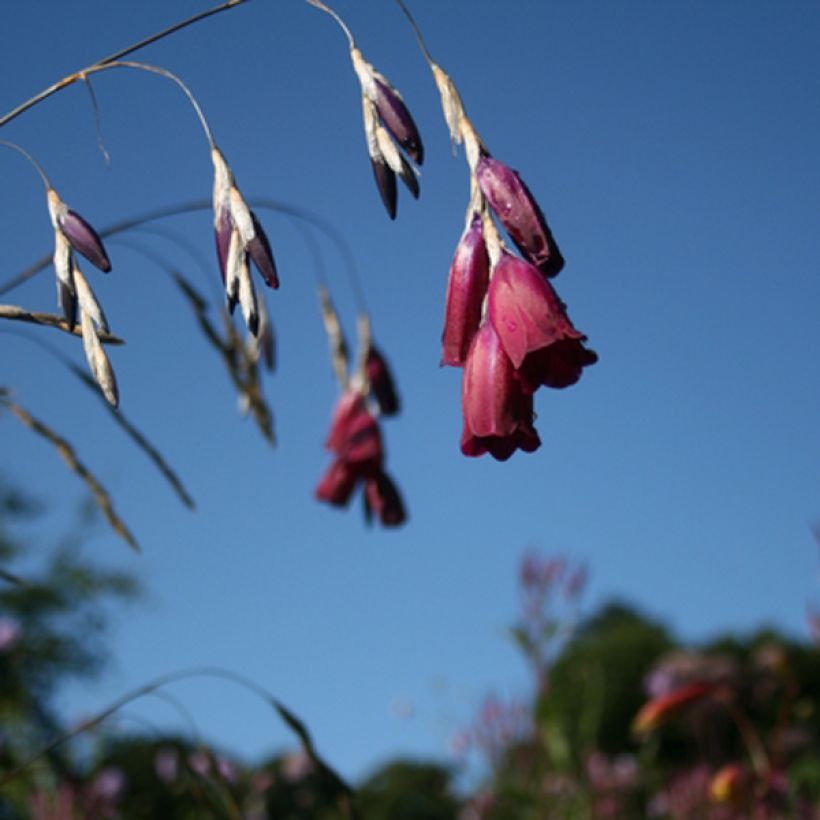

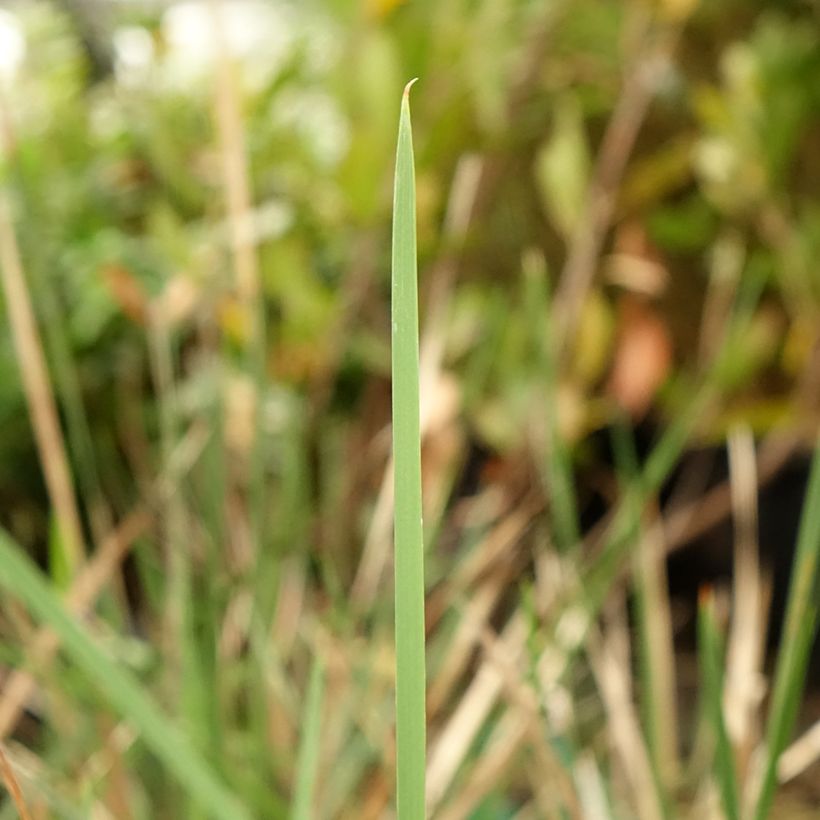

Flowering
Foliage
Plant habit
Botanical data
Dierama
x pendulum var. robustum
Blackberry Bells
Iridaceae
Angel's fishing Rod, Wedding bells
Cultivar or hybrid
Other Perennials A to Z
Planting and care
Plant Dierama 'Blackberry Bells' in a sunny location, in light, well-worked, humus-bearing soil that remains moist in summer but is well-drained to prevent corm rot in waterlogged soil during winter. Its cultivation is somewhat delicate during the first few years, requiring careful attention. Once established, the plant is less demanding in terms of water and is better able to withstand normal winters. Hardy down to -10°C (14°F), we recommend protecting your plant in winter with a thick mulch, but you can also cultivate it in large pots that you can shelter during winter. In pots, monitor watering during the growing season. During the dormancy period in winter, the soil should remain just moist, never waterlogged. It does not appreciate pruning (except for removing faded flowers), as it slows down its growth. This variety fairly reliably propagates through sowing, but young plants take 6 to 7 years before they flower.
Planting period
Intended location
Care
-
, onOrder confirmed
Reply from on Promesse de fleurs
Summer flowering perennials
Haven't found what you were looking for?
Hardiness is the lowest winter temperature a plant can endure without suffering serious damage or even dying. However, hardiness is affected by location (a sheltered area, such as a patio), protection (winter cover) and soil type (hardiness is improved by well-drained soil).

Photo Sharing Terms & Conditions
In order to encourage gardeners to interact and share their experiences, Promesse de fleurs offers various media enabling content to be uploaded onto its Site - in particular via the ‘Photo sharing’ module.
The User agrees to refrain from:
- Posting any content that is illegal, prejudicial, insulting, racist, inciteful to hatred, revisionist, contrary to public decency, that infringes on privacy or on the privacy rights of third parties, in particular the publicity rights of persons and goods, intellectual property rights, or the right to privacy.
- Submitting content on behalf of a third party;
- Impersonate the identity of a third party and/or publish any personal information about a third party;
In general, the User undertakes to refrain from any unethical behaviour.
All Content (in particular text, comments, files, images, photos, videos, creative works, etc.), which may be subject to property or intellectual property rights, image or other private rights, shall remain the property of the User, subject to the limited rights granted by the terms of the licence granted by Promesse de fleurs as stated below. Users are at liberty to publish or not to publish such Content on the Site, notably via the ‘Photo Sharing’ facility, and accept that this Content shall be made public and freely accessible, notably on the Internet.
Users further acknowledge, undertake to have ,and guarantee that they hold all necessary rights and permissions to publish such material on the Site, in particular with regard to the legislation in force pertaining to any privacy, property, intellectual property, image, or contractual rights, or rights of any other nature. By publishing such Content on the Site, Users acknowledge accepting full liability as publishers of the Content within the meaning of the law, and grant Promesse de fleurs, free of charge, an inclusive, worldwide licence for the said Content for the entire duration of its publication, including all reproduction, representation, up/downloading, displaying, performing, transmission, and storage rights.
Users also grant permission for their name to be linked to the Content and accept that this link may not always be made available.
By engaging in posting material, Users consent to their Content becoming automatically accessible on the Internet, in particular on other sites and/or blogs and/or web pages of the Promesse de fleurs site, including in particular social pages and the Promesse de fleurs catalogue.
Users may secure the removal of entrusted content free of charge by issuing a simple request via our contact form.

































